VETERAN Asians in the arts and creative industries have urged the next generation of aspiring artists to stick with their passion and not give up in challenging times as “we need storytelling to survive”.
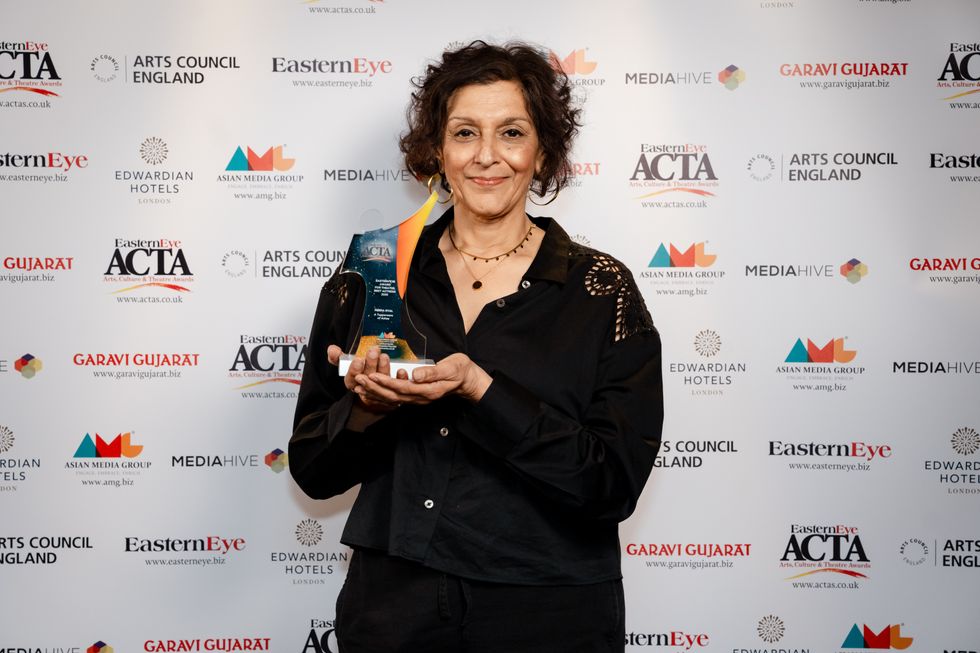
Waris Hussein and Meera Syal were among the top winners at the annual Eastern Eye Arts, Culture and Theatre Awards (ACTA) in London last Friday (23), when south Asian achievers in the sector were recognised.
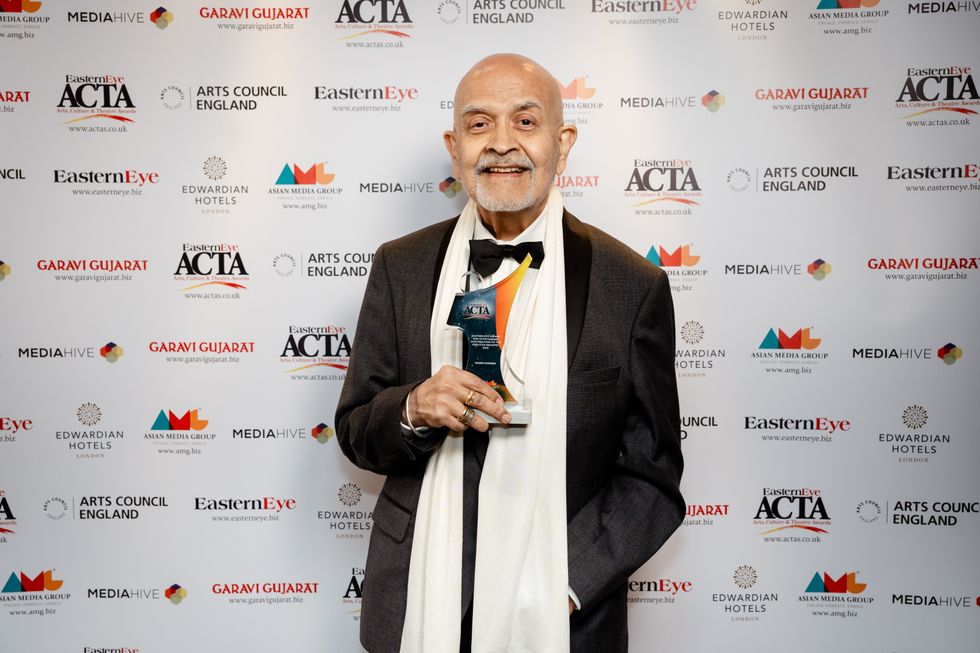
Hussein, who directed the first seven episodes of the BBC’s Dr Who in 1963, establishing the successful series, won the ACTA for outstanding contribution to the creative industry.
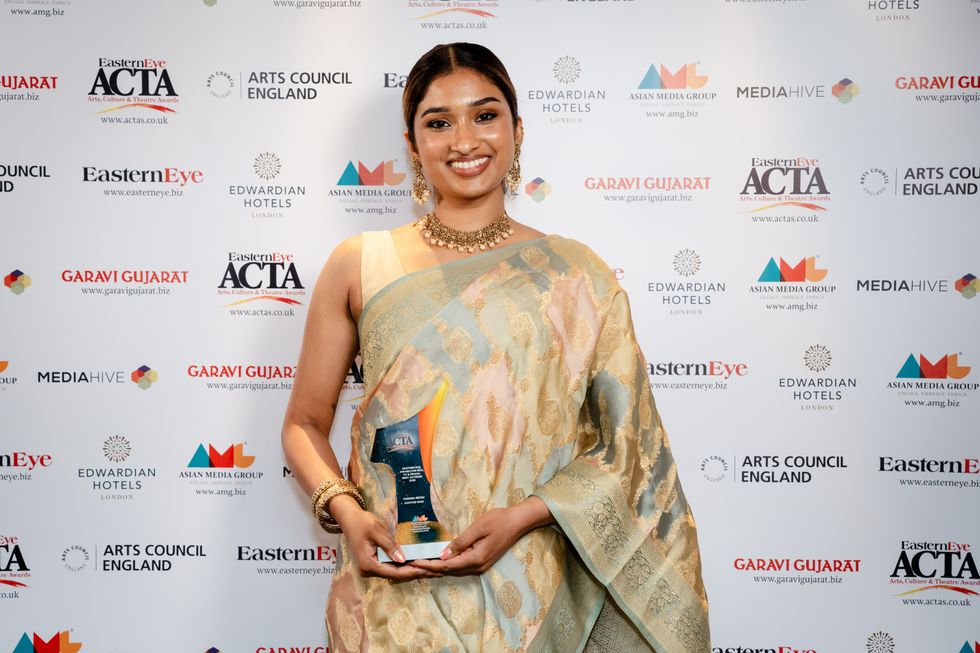
He told the audience at the May Fair Hotel, “Please, don’t give up... I persisted, and this is where I am.”
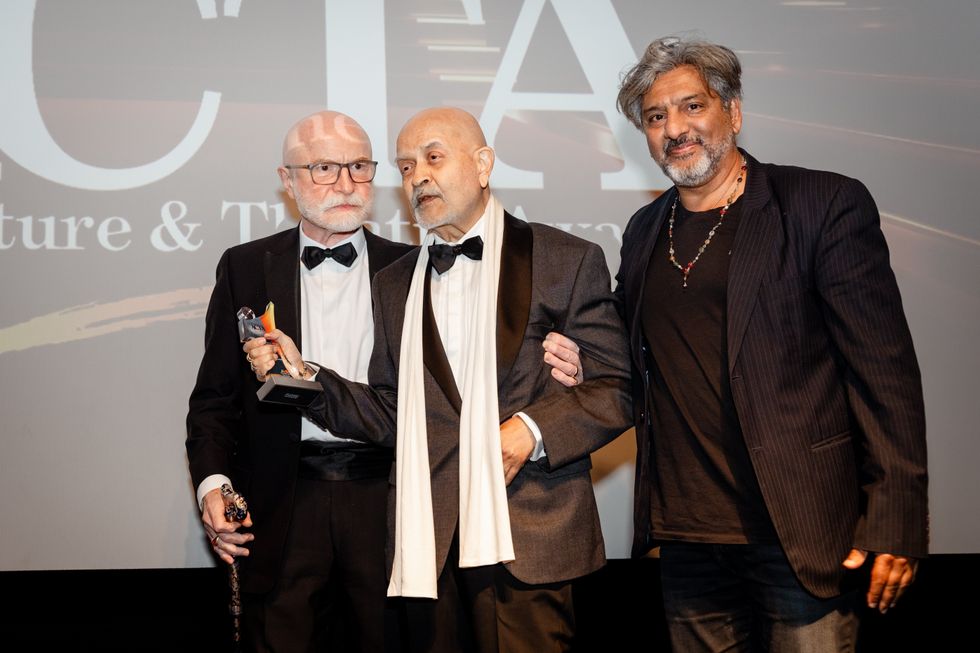
Syal, who scooped the best theatre actress ACTA for her performance in A Tupperware of Ashes, said those who wish to enter the arts should keep going. The actress, writer and comedian also reiterated her call for more support in the arts and sought to reassure concerns among minority communities about the rhetoric around ditching diversity and inclusion targets.
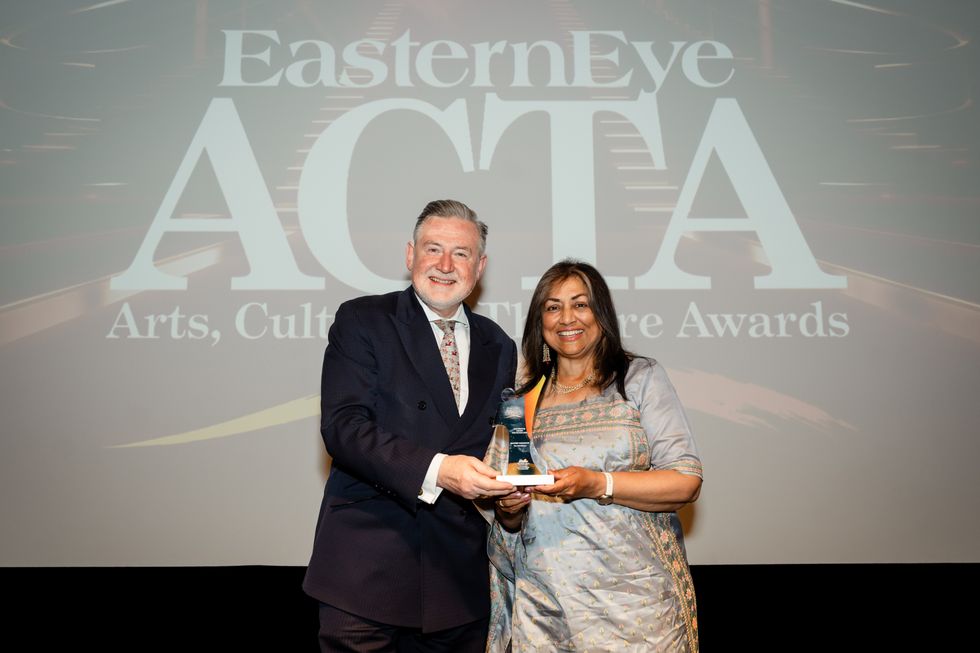
Syal said, “It’s really easy to get worried, but everything is cyclical.
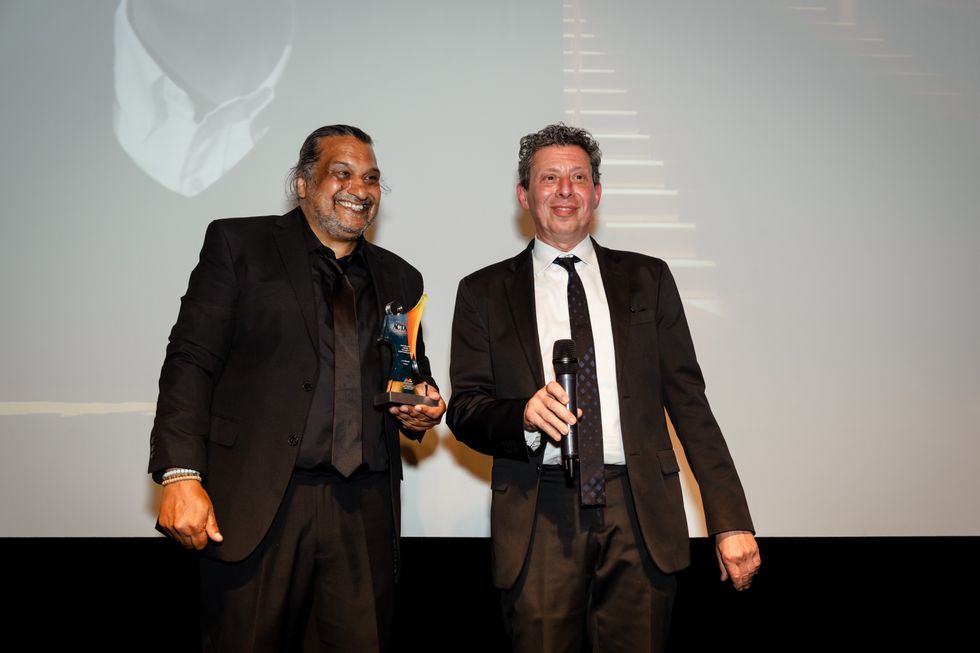
“You have to be optimistic as an artist. Everyone in this room that has gone into the arts does it because they love it, and there’s nothing else they want to do. It’s risky and every Asian parent goes, ‘no, no, no,’ but you still do it.
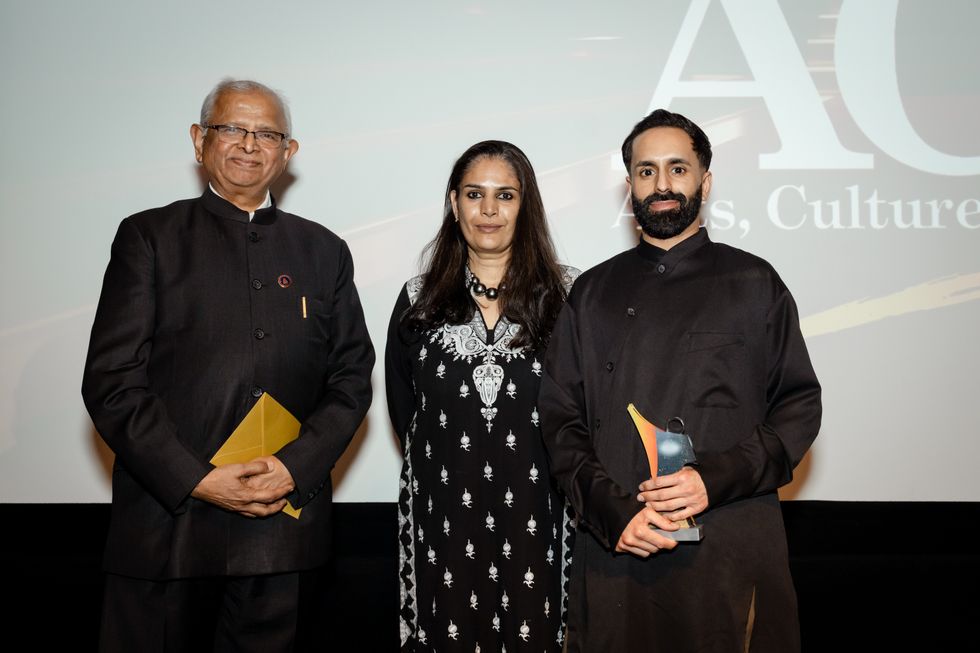
“And the reason is because we are ultimately optimistic. We believe in the power of storytelling, and we need storytelling to survive.
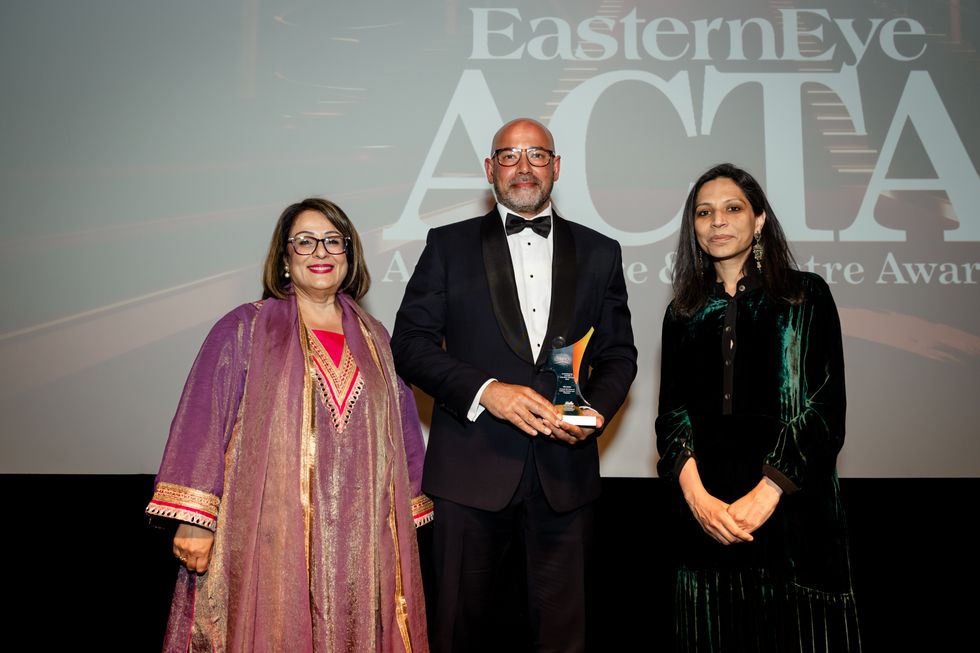
“What so many other people have said is, without the stories we are seen as different. When you share your story, it’s a political act. It’s an act of rebellion. It’s an act of unity.
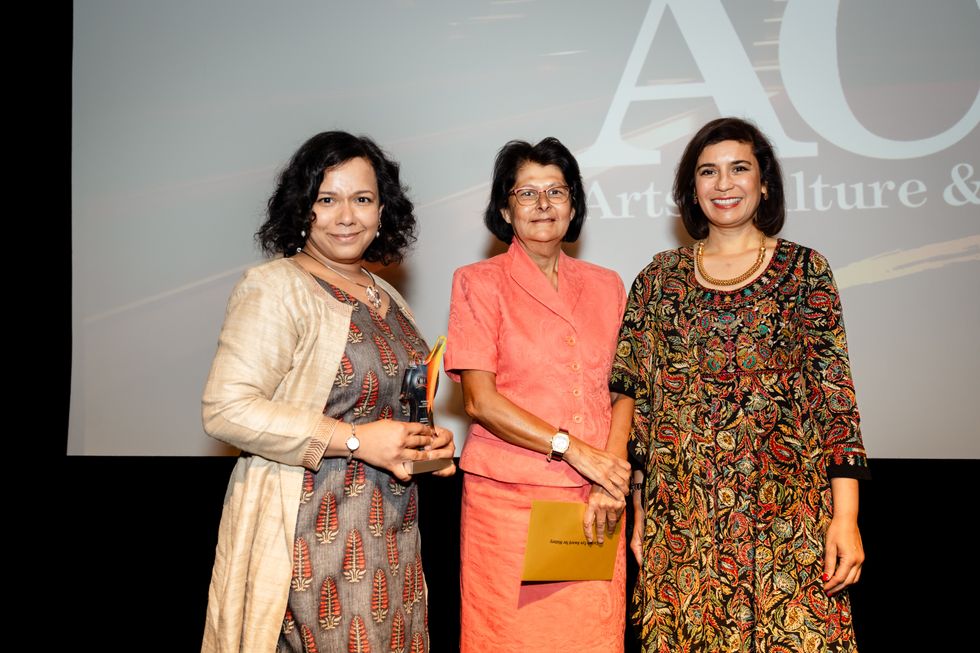
“At the same time, you’re asking people to step in your shoes, and when they do that, they can’t other you because they’ve been in your shoes. So, storytelling is vital for our survival.”
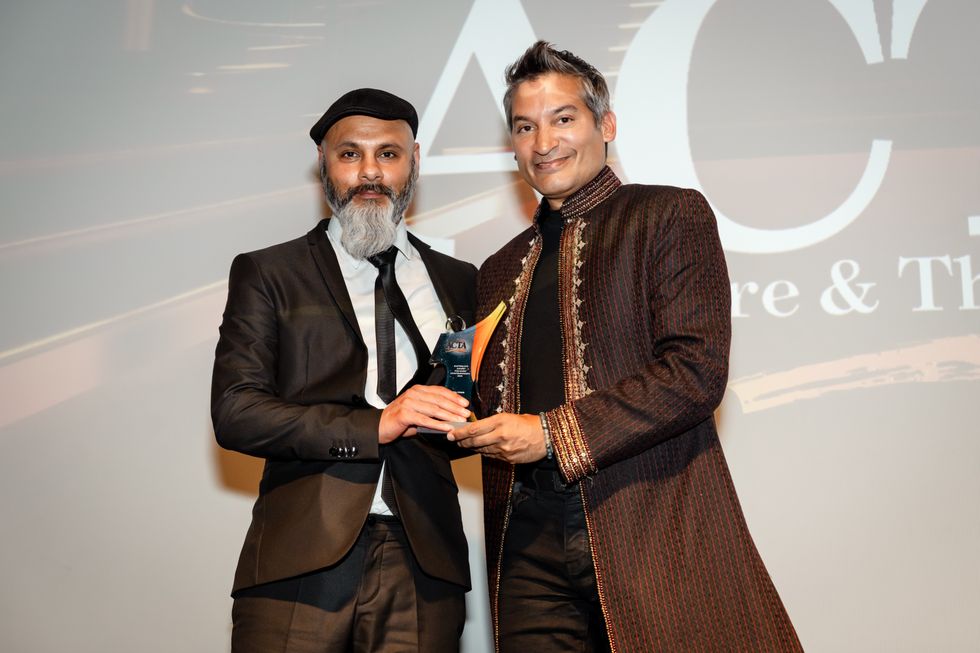
She added, “It’s survival, and you survive by banding with your tribe and supporting each other.”
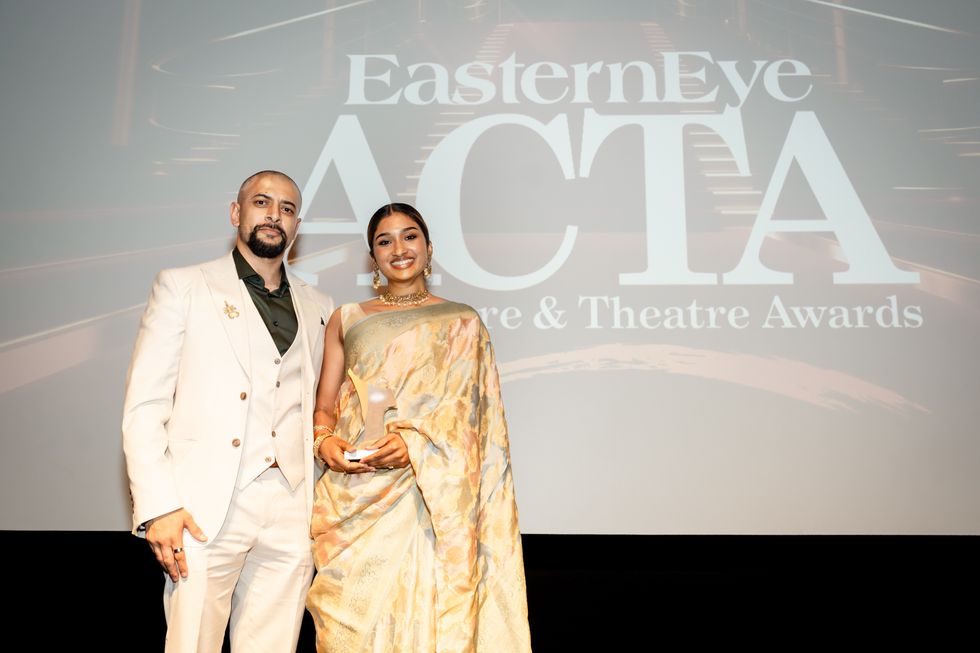
Syal’s contemporaries as well as the next generation of actors and directors were in the audience, among them her daughter Milli Bhatia.
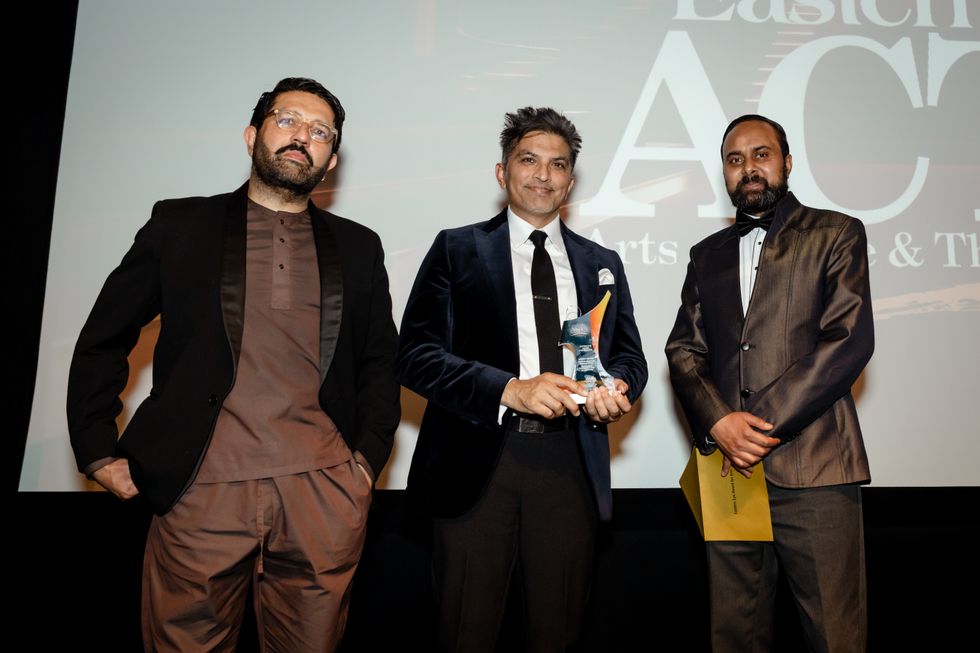
Hussein, who received a standing ovation as the award was presented to him, recalled the challenges of his generation from the 1960s. “It sounds very difficult… (for) the younger generation,” Hussein said.
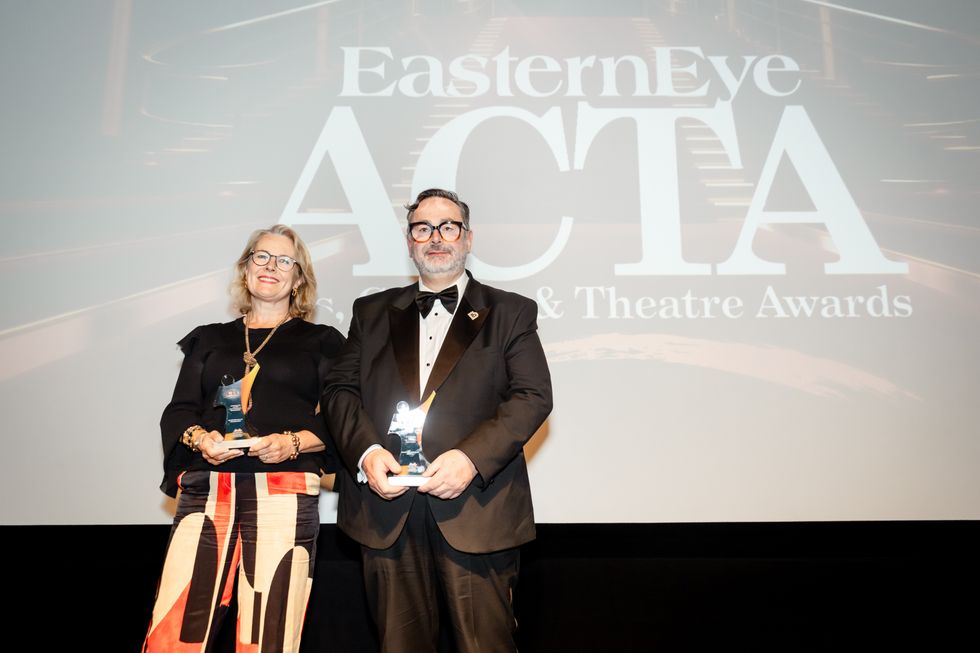
“You’ve got to face the realities. Thank god, today we can all make a statement.
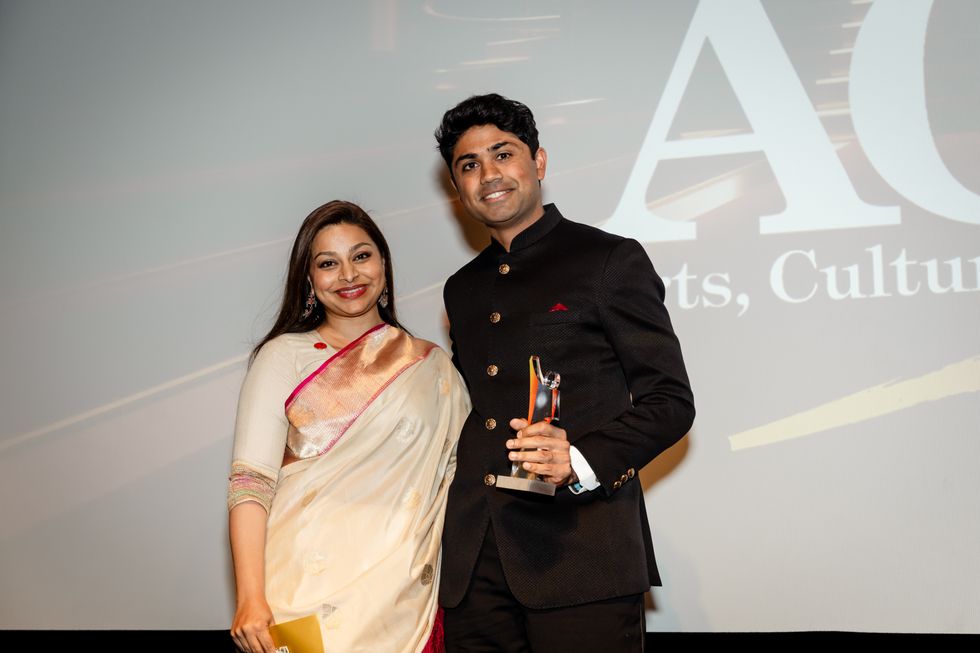
“Way back in the 1960s, we had a problem. We had a man called Enoch Powell... and we had to try and make something of ourselves.”
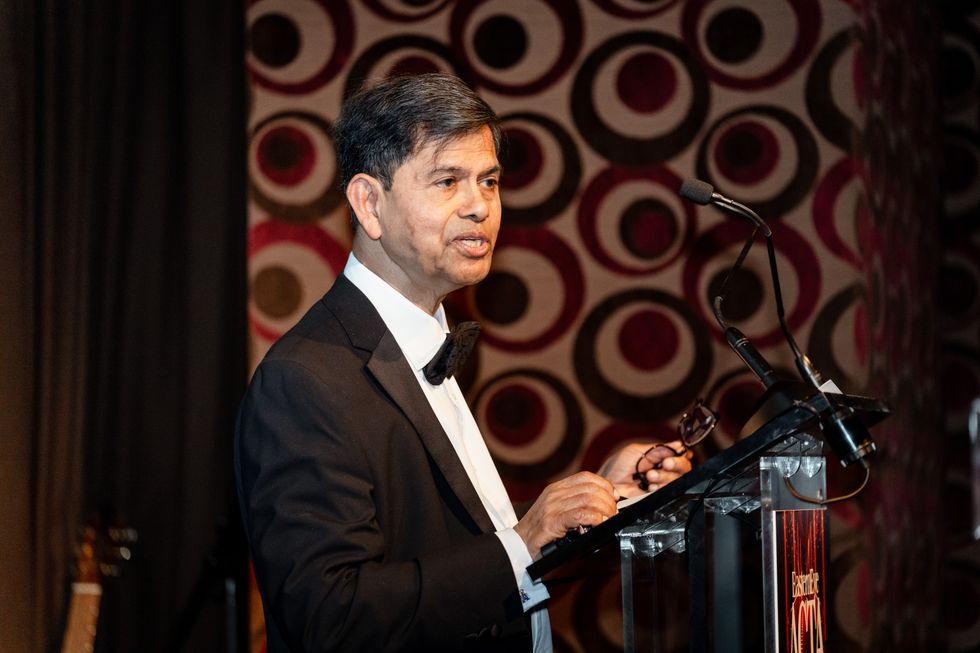
Hussein recalled how he entered the industry after completing his education in England. He said, “I’m very grateful to the BBC. They gave me my first break (to direct Dr Who), and I’m very loyal to it.
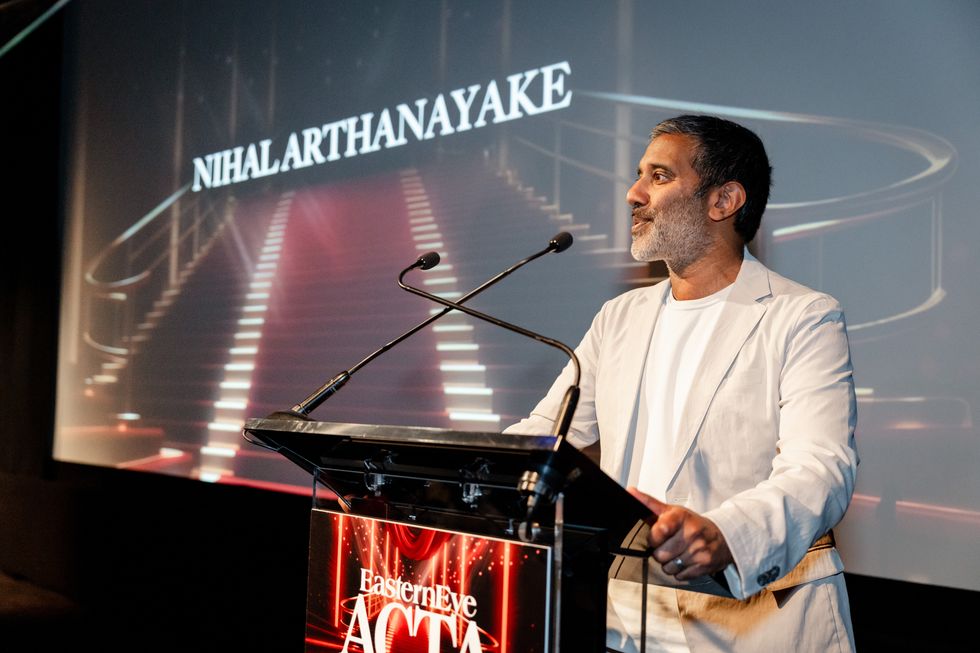
“I don’t know whether I was the first ever to be a kind of experiment or something or other, but at least it proved to be something that worked out. Do not give up being an experiment. Do follow in the footsteps of whoever we are and some of us today,we persisted and succeeded.”
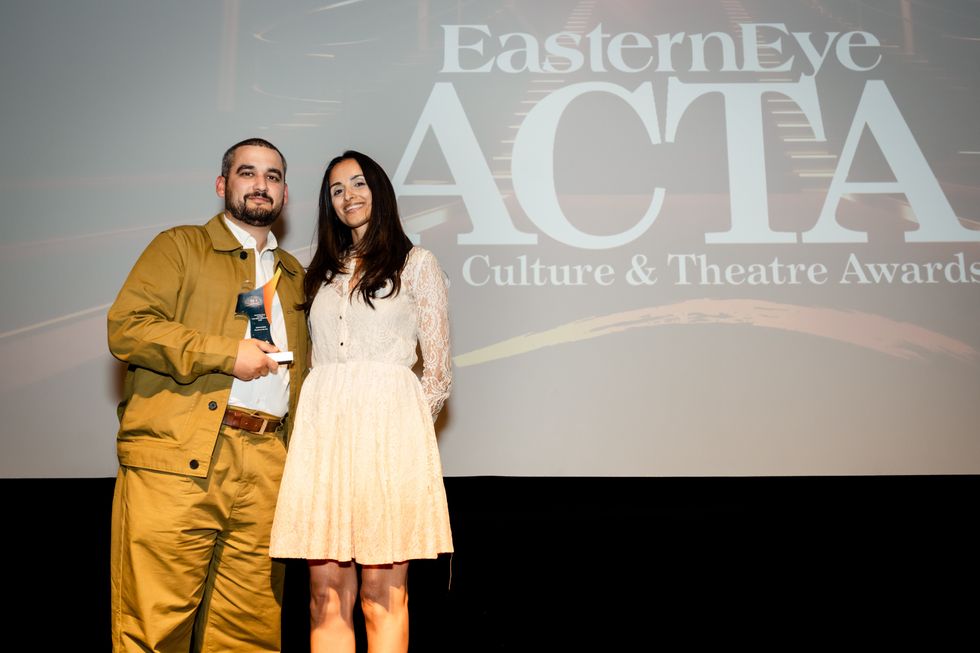
Since their launch in 2016, the annual Eastern Eye ACTAs have recognised talent among south Asians in the artistic and creative sectors.
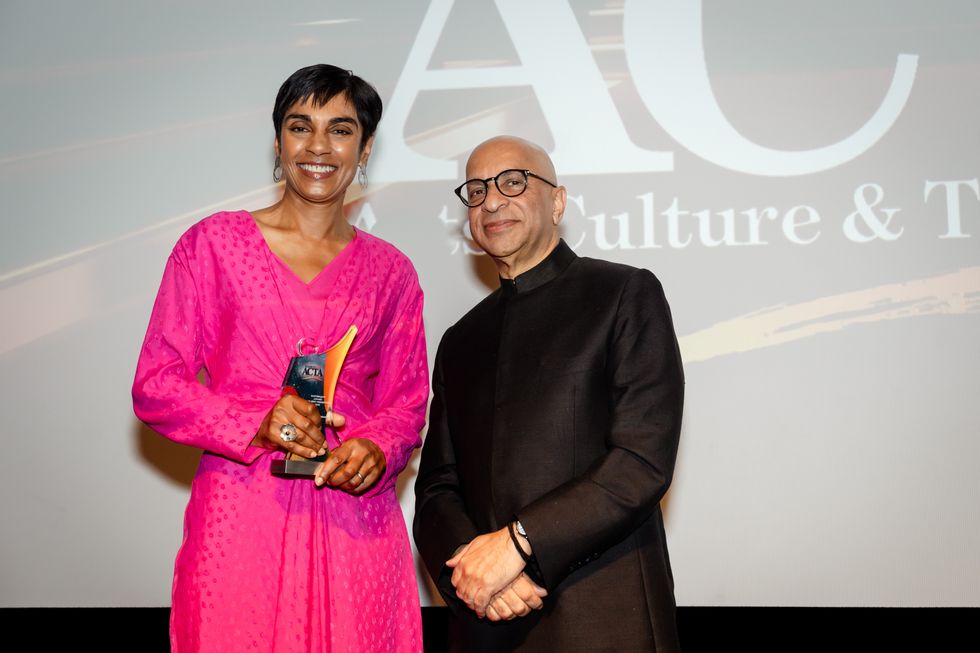
More than 20 winners were honoured at the event last Friday, from music to literature and community engagement.
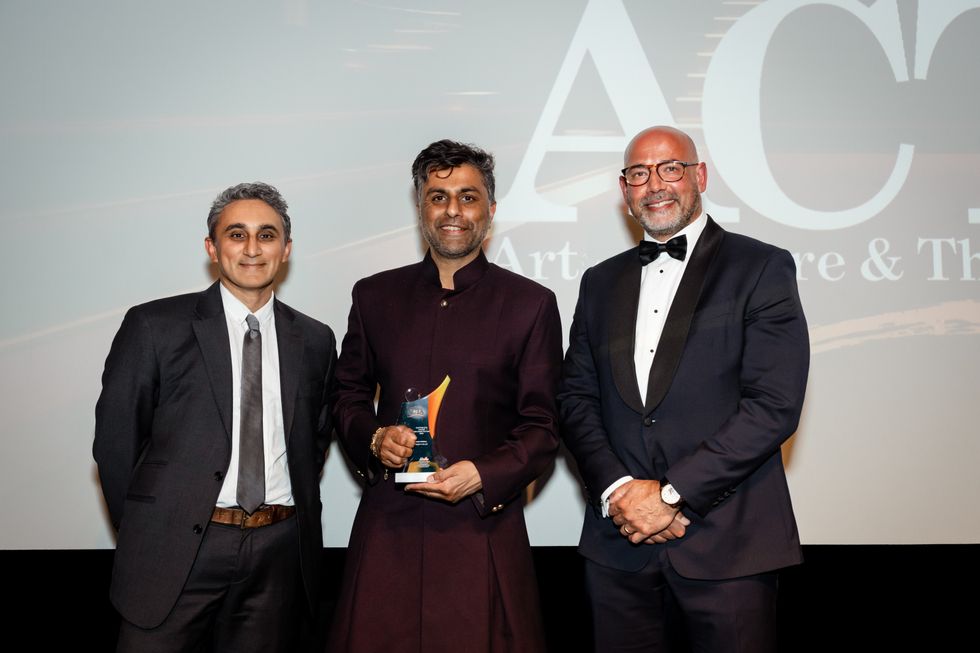
Among those who won was the writer AA Dhand, whose crime fiction book based in Bradford was adapted by the BBC as a short series, Virdee. Its lead actor, Staz Nair, also won an award.
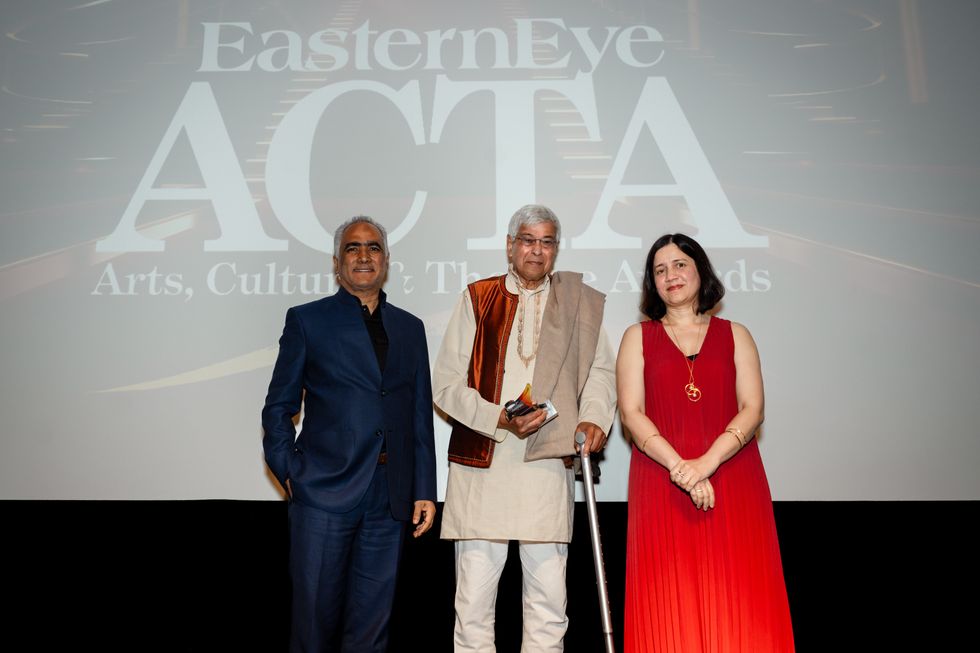
Dr Who actress Varada Sethu was named best actress in the film, TV and drama category, while Rishi Nair won best actor in the same category for his role in the detective drama Grantchester.
Nair said he has noticed a change for the better in the past decade. “When I first started auditioning for any role, you walked into a room and there were 10 white guys and I was a token brown guy.
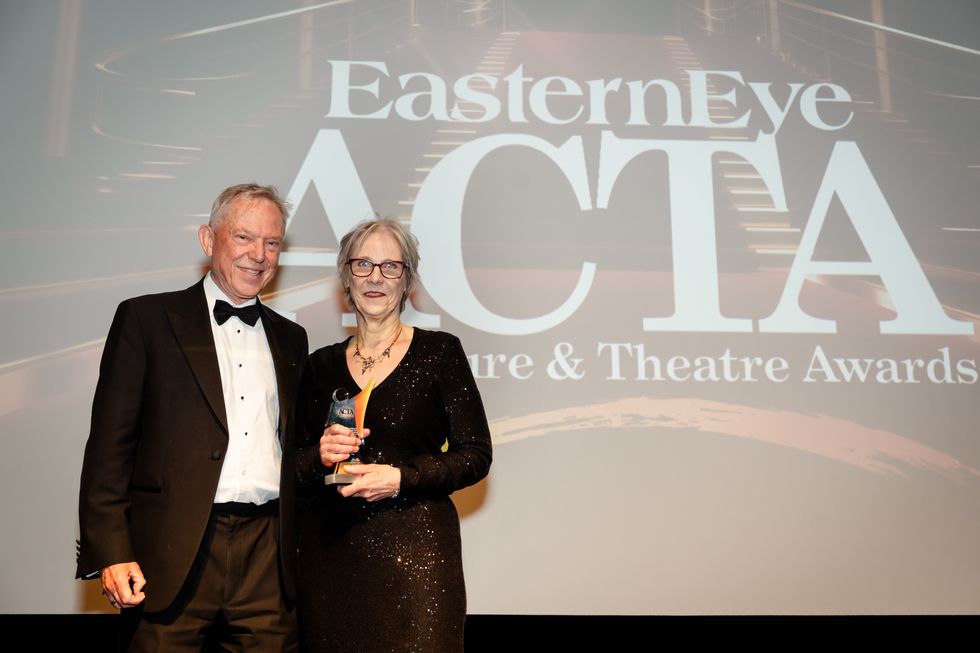
“Now you go into an audition room, and there are people that look like me. We have an opportunity to portray these characters.
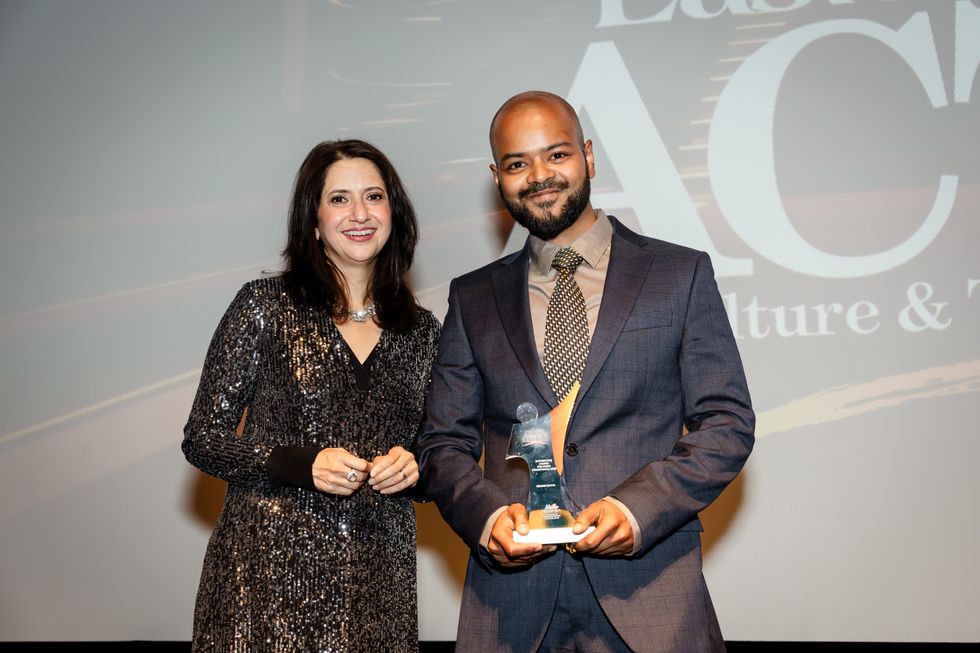
“I never wanted to be the token doctor or terrorist. I wanted to be an actor, and I wanted to be a lead actor, but I never saw people who look like me.
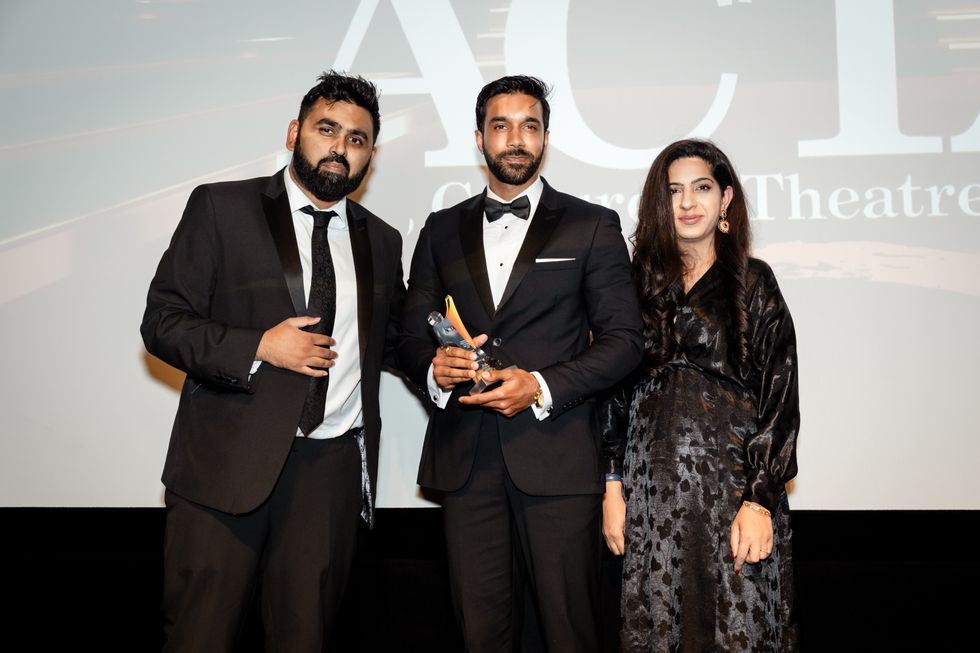
“Now we are seeing people who look like me on TV playing these lead roles. And so for the next generation, I hope it gives them an opportunity to actually pursue it and go for it now.”
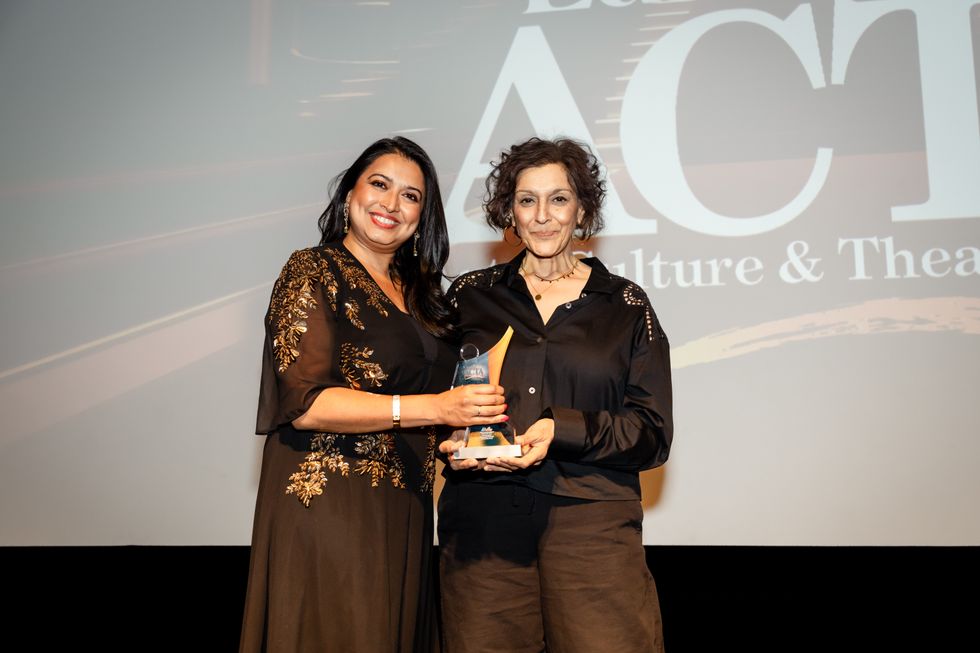
In her acceptance speech, Sethu recalled being cast as a series regular opposite Ncuti Gatwa, a black actor, as Dr Who.
She said, “I remember us being in that room, and looking at each other, and (thinking) this is special.... so special.
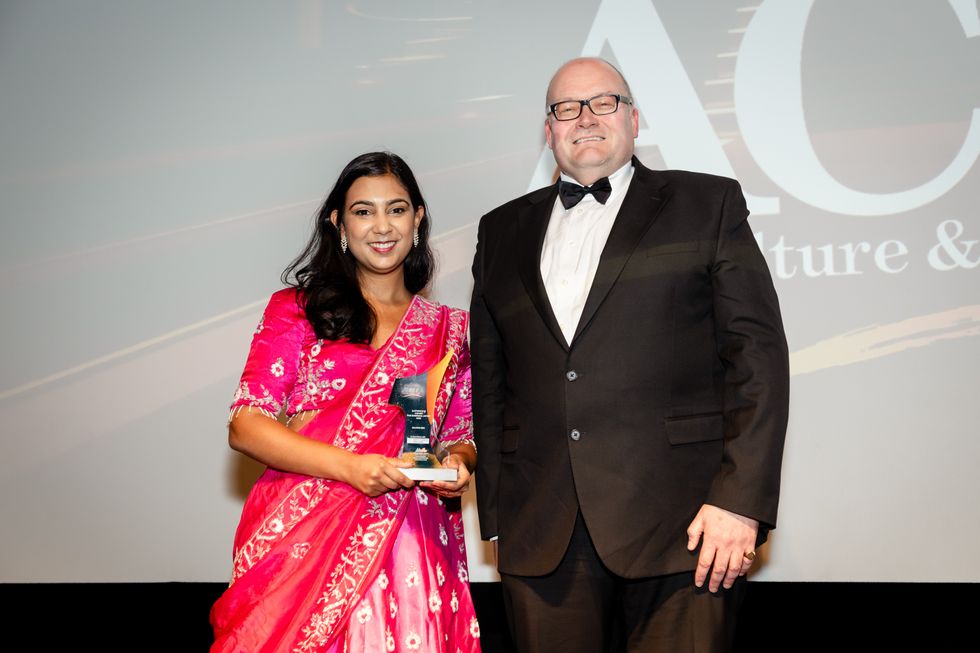
“Every time you see brown faces take up space, take up narratives, it normalises it… our stories are just as important as every other person’s stories, and also are relatable.
“We’re less othered that way every single time that happens. So to be part of anything that is making progress in that sense means a lot. It means progress and the future.”
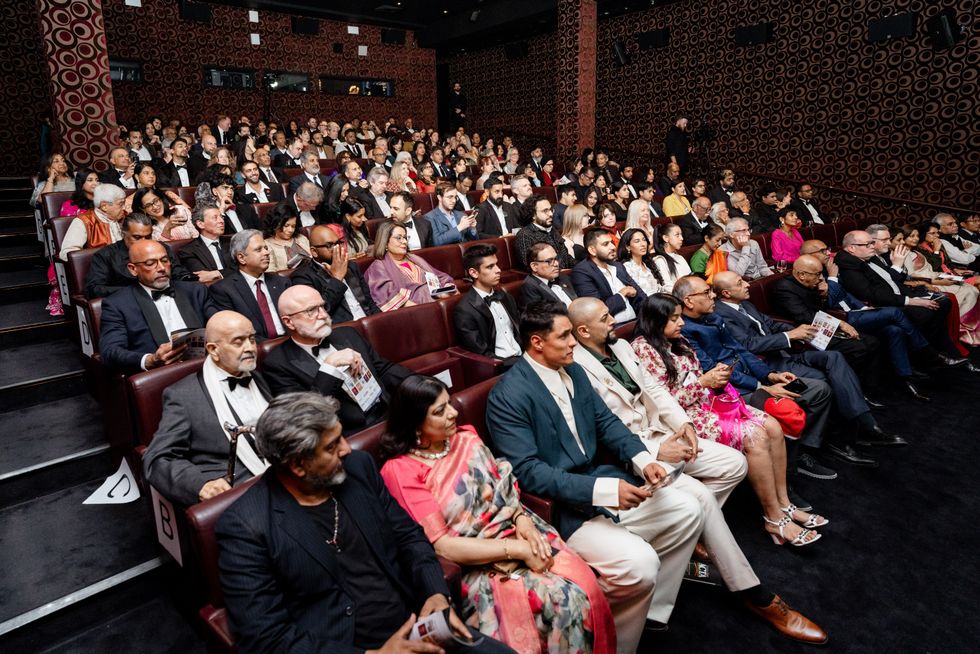
Professor Partha Mitter won the Editor’s special award. He is regarded as “the most important living historian of Indian art” and has spoken out about why Indian art should not be distorted or seen through a Eurocentric lens because it was every bit as good as western art.
Mitter described how Indian art was regarded as second class (in comparison to Western art) because European esthetic norms were (wrongly) applied to it.
“The problem was that you cannot use the aesthetic traditions of another culture to judge Indian art,” he told the audience.
One of the night’s big winners was Staz Nair, for his role as Virdee in the BBC drama based on Dhand’s City of Sinners.
Nair said, “If we are great, we stand on the shoulders of giants”.
Paying tribute to the author, he added, “Amit [Dhand] told me his kids, when they play make-believe, like many of us do, they would fight over who would play the Hulk or Spiderman. And now they fight over who’s going to be Harry Virdee. This is what it’s all really about, isn’t it, representation and reflection. Heroes that look like us, sound like us, step outside of the box and hopefully help our kids stand taller and proud.”
Other winners included Reeta Chakrabarti (best presenter), Neil Basu (non fiction), Cauvery Madhavan (fiction), Ram Murali (crime fiction), Niraj Chag (music), Nandini Das (history), Adam Karim (best director) and Saachi Sen (emerging artist). She also performed two of her songs on the night.
Eastern Eye editor-at-large Amit Roy said, “We are resolved to help secure the future of British Asian arts by looking not at the next couple of years or even the next 10 years, but the next 25 years.”
He added, “It may not be a bad idea for Asian parents to make the arts fun for their children from the earliest age.”
Nihal Arthanayake was the compere and the event was supported by the Arts Council England and May Fair Hotel.

















 Kulsuma Aktergetty images
Kulsuma Aktergetty images